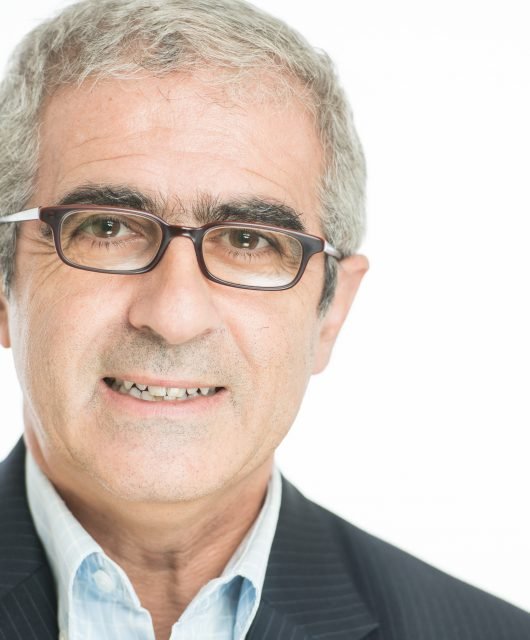Netflix – Rejoining The Media Mortals
An astronomic rise…
Netflix has experienced a meteoric ascent to superhuman status. No other Media company comes close to its journey from a $1.2bn revenue company pushing DVDs through letterboxes in 2007 to the undisputed global SVOD leader generating annual sales of $16bn.
Moreover, the name has come to cause fear and panic in the boardrooms of Media companies, akin to an absent-minded student uttering “Voldemort” at Hogwarts. Netflix has somehow become the unspeakable evil, seemingly out to destroy the world of TV as the incumbents know it. Cue knee-jerk reactions from “old Media” companies, with hundreds of millions wasted hurriedly pushing out Netflix-wannabe OTT services, financing slates of originals with the hope of keeping up with Netflix’s run of hit series, playing with data lakes and content recommendation algorithm alchemy, and buying into a variety of semantic copycats boasting the “-flix” suffix.
This stratospheric growth and god-like status in the Media sector has surely been beyond the wildest designs of Netflix’s leadership. In 2013 Netflix Chief Content Officer Ted Sarandos, somewhat humbly in retrospect, proclaimed his desire to “become HBO faster than HBO can become us”. At the time of its acquisition by AT&T in June 2018, HBO’s parent company Time Warner was a $85bn company trading at an EV/EBITDA multiple of 11.5x. Netflix is a $165bn company on a dizzying 87x valuation multiple.
…and a bump in the road
But knee-jerks run both ways. Netflix’s Q2 results were interpreted by many as a sign that the company might just be human after all as the missed subscriber forecast sent shockwaves across the market, wiping $16bn off the company’s value. People don’t expect immortals to bleed, and panic when they do. This fall in value alone was equivalent to the entire market capitalisation of Discovery Inc and $2bn more than that of Viacom, home of establishments such as Paramount Pictures, MTV and Nickelodeon.
Perspective is important. Netflix added 2.7 million subscribers in the second quarter of 2019 and grew revenue by 26% yoy. That is by all accounts a healthy performance. True that Netflix’s approach to finance and accounting cause some jitters, including its approach to content depreciation and its recent move from upfront to staggered payments to its production partners. But one could also argue that Netflix is rightly rewriting the rules of a very old game.
Nevertheless, it will be difficult for the Netflix juggernaut to maintain its relentless growth rate. Netflix has now reached high penetration in the US and other “low-hanging” English-speaking markets. Each additional subscriber will come with rising acquisition costs, while carefully considered and prioritised investment in original local content will be needed to make serious inroads in non-anglophone markets, at high cost and risk. Netflix’s first Arabic original, Jinn, was met with a lukewarm response and a dose of criticism for its deviation from local culture and values.
Sharing the stage
Even more materially Netflix will, for the first time, face serious competition in the SVOD market. The firm enjoyed a surge of growth through its adolescent years that took everyone by surprise, not least the “Big Media” companies that failed to anticipate the speed and extent of paid-for online video take-up, feeding Netflix’s growth with discounted streaming rights for their content, and have since been slow to respond. After several false starts these giants, strengthened and emboldened through industry consolidation, are finally getting their direct-to-consumer act together. Their slate of new OTTv launches will be supplemented by a strong new wave of independent services.
- Entertainment and kids: Soon Disney-Fox, Warner (backed by AT&T), NBCU (backed by Comcast), CBS-Viacom and others will each offer a suite of similar global SVOD services, each with a deep library and healthy budget
- Sports: Beyond Disney-owned ESPN, there is a slew of new OTTv services targeting share of time and wallet from local pay TV operators (e.g. Foxtel’s Kayo), ambitious global independents (e.g. DAZN, Eleven Sports), and the IP owners themselves (e.g. UEFA, Manchester City FC)
- Natural history/documentary: The tie-up between Discovery and the BBC promises gold from the partnership that brought us the genre-defining Blue Planet series
- Local: Broadcasters are, finally, seeing merit in joining forces with new OTT partnerships such as Salto in France and LovesTV in Spain, and the overarching European Media Alliance. The resuscitation of the Kangaroo OTT JV between the major UK broadcasters promises much if the successes of the BBC iPlayer and Britbox are anything to go by. Advertising and production partnerships are following.
Netflix raced out of the blocks and out of sight. Now we can expect the chasing pack to close the gap and the camera to fit them all in the same frame rather than Netflix on the one side and, panning back, everyone else on the other.
Not death but ‘mortalisation’
Of course, although Netflix is passing out of the adolescent stage it will not compromise and be happy with a semi-detached brick house and a grey Honda Civic in the drive, fitting in quietly with its new neighbours. That is not in its nature and culture as outlined in its expansive and impressive 4,456-word culture manifesto. The drive, innovation and relentless customer focus remain, fueling the hunger for continuous growth and self-improvement – indicators of a company with staying power and one that is under no pretense of immortality. This is a healthy sign for Netflix’s future.
Just as Netflix’s ascent was in some ways over-hyped, its first significant slip-up – if you can even call it that – should not be met with death knells. Netflix will not die. Disney+ will not be a “Netflix-killer” as some headline-seeking analysts would like us to believe, just as The Disney Channel could not be an HBO-killer. It is not an either-or situation, especially not at $20/month for both. And the Media industry as a whole, not to mention viewers, should be eternally grateful to Netflix for the much-needed shot in the arm (or kick up the backside) that it has provided to a sector that was in real danger of stagnating.
Now Netflix will have to continue to up its game to retain the SVOD limelight and surpass the high bars that it has set for everyone including itself. It does look like the start of a new chapter for the company, where Netflix comes down from the heavens and finds its place amongst fellow Media mortals.
Sharing the stage with the Disneys and Warners of this world looks inevitable, and there will be new breakthrough successes from the suite of other challenger services, mass-market and niche, global and local. There is no shame in this. This is very respectable company for a 22-year-old to be rubbing shoulders with and Netflix deserves full credit for earning its seat at the top table of Global Media. And going back to Mr Sarandos’s above quote, perhaps this was the strategy all along.





